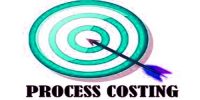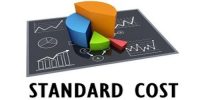Overhead
Overhead is those costs required to run a business, but which cannot be straight attributed to any particular business activity, product, or service. A manufacturing concern incurs different items of costs while converting raw materials into finished outputs. Such costs can be classified on a different basis. One such basis is the directness of the costs to the product unit or identifications of costs with a particular product unit. For example, raw materials can be directly identified with the product unit, whereas consumable stores or cotton waste cannot be directly identified with any product unit.
Examples of overhead are: Accounting and legal expenses, Administrative salaries, Depreciation, Insurance, Licenses, and government fees, Property taxes, Rent, Utilities etc.
On this basis, therefore, the cost can be classified into direct costs and indirect costs. Hence, the total cost of a product consists of direct and indirect costs. The direct portion of the total cost is known as prime costs and the indirect portion is called overheads. For example, paying the rent is not a profit-making activity, but it allows the firm to maintain a building and manufacture its products. It is important for budgeting purposes, but also for determining how much a company must charge for its products or services to make a profit. In fact, overheads are the total of all indirect costs incurred in the production of outputs which must be taken into account while ascertaining the total cost of a product or job.
















